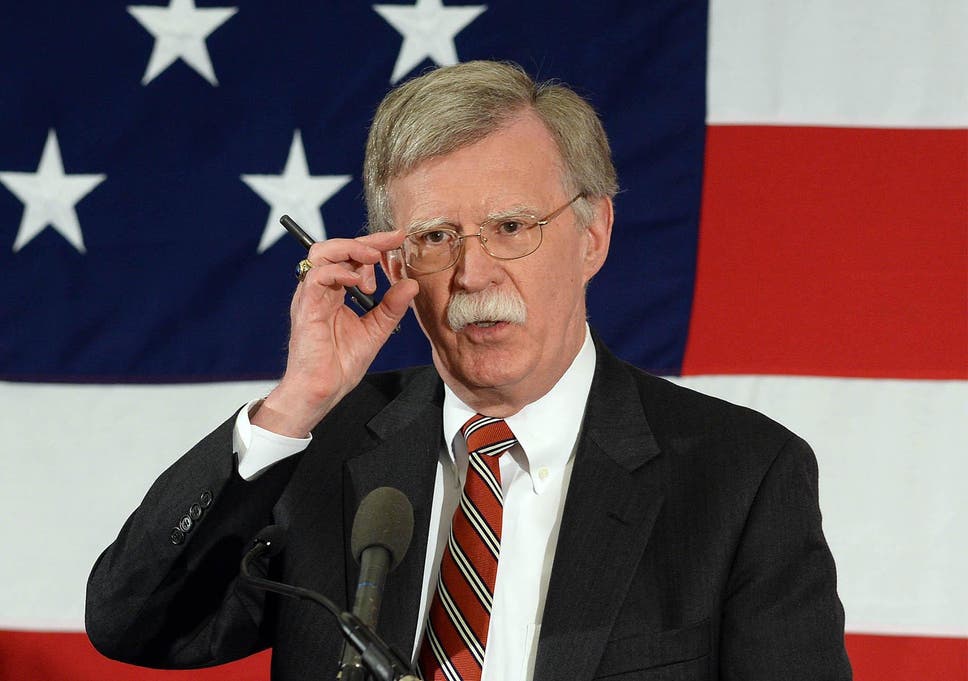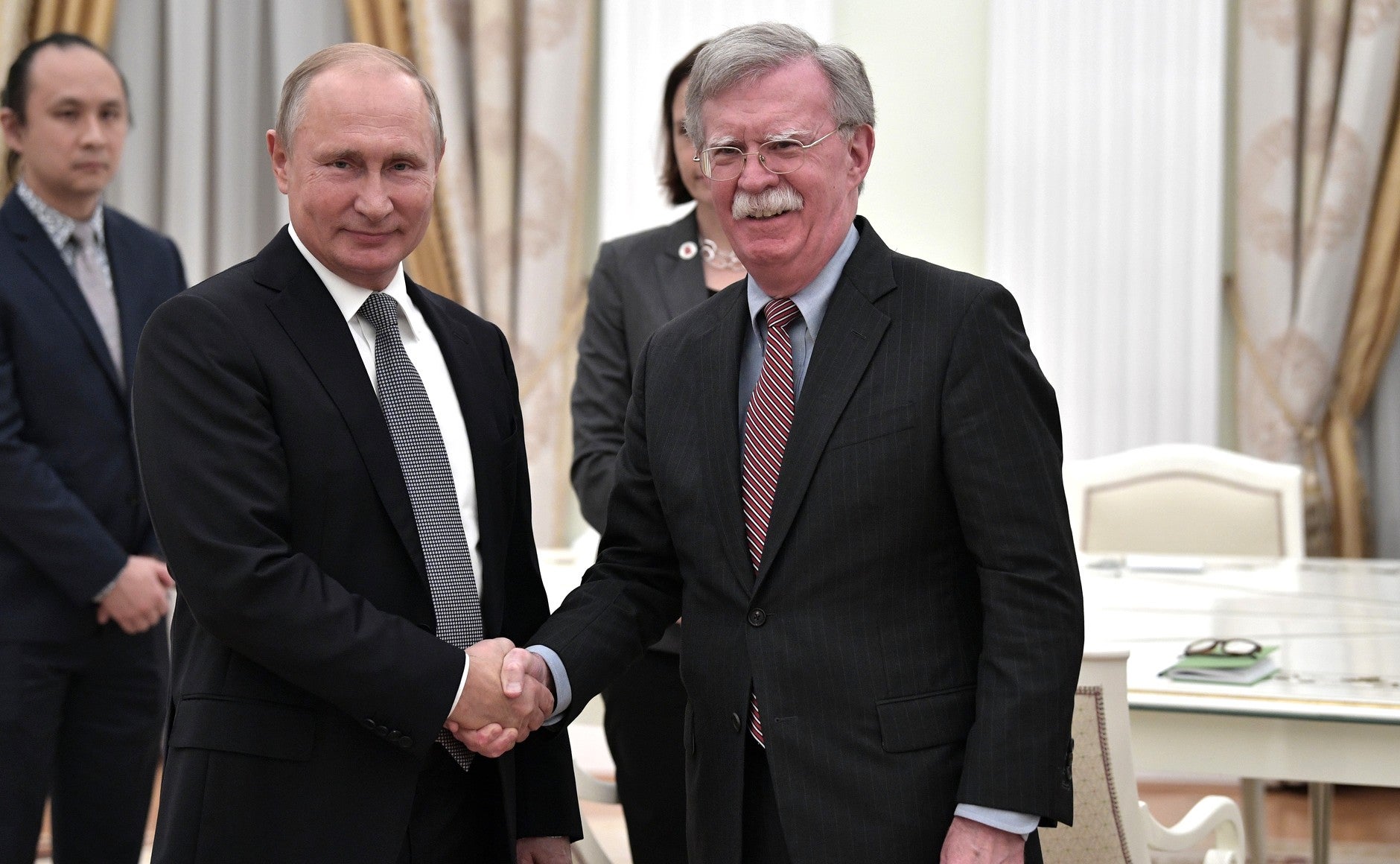The confrontational remarks from John Bolton
come same day as United Nations calls on US to lift Cuban embargo
- Chris RiottaNew York @chrisriotta
- 20 minutes ago
The Independent US

John
Bolton is national security advisor to Donald Trump ( Getty )
Donald Trump's White House has announced an aggressive new
policy to confront the governments of Cuba, Venezuela and Nicaragua, labelling the three
nations the “troika of tyranny”.
“Many of you in the audience today have personally
suffered unspeakable horrors at the hands of the regimes in Cuba, Venezuela,
and Nicaragua, only to survive, fight back, conquer, and overcome,” John Bolton, Mr Trump's national security advisor said
during a speech in Miami, Florida. “The troika of tyranny in this hemisphere -
Cuba, Venezuela and Nicaragua - has finally met its match,” he said.
The remarks came the same day the United Nations General Assemblyoverwhelmingly adopted its 27th annual resolution
calling for an end to the nation's economic embargo on Cuba, after a failed bid
by Washington to amend the text to push Cuba to improve its human rights
The UN vote can carry political weight, but only
the US Congress can lift the more than 50-year-old embargo. The
United States and Israel voted against the resolution, 189 countries voted in
favour and Ukraine and Moldova did not vote.
Watch
more

Mr Bolton promised a tough stance by the Trump
administration towards “dictators and despots near our shores” and singled out
Venezuela, Cuba and Nicaragua in a speech in Miami, which is home to large
numbers of migrants from Cuba and Venezuela.
He also said the president had signed an executive
order to ban US persons from dealing with entities and individuals
involved with “corrupt or deceptive” gold sales from Venezuela.
The speech was expected to go over well
with Cuban-Americans and other Hispanics in Florida who favour stronger
pressure on Cuba's Communist government and other leftist governments in Latin
America. However, it appeared unlikely the new policy would be well-received by
international governments.
US Ambassador to the United Nations Nikki Haley told the General Assembly that the resolution
was an opportunity for countries “to feel they can poke the United States in
the eye.”
“But you're not hurting the United States when you do
this. You are literally hurting the Cuban people by telling the regime that
their treatment of their people is acceptable,” she said ahead of the vote.
The United States consistently voted against the U.N.
resolutions for 24 years but abstained for the first time in 2016 under former
President Barack Obama, as Washington and Havana forged a closer relationship.
Miguel Diaz-Canel elected president of Cuba
replacing Raul Castro
But relations have deteriorated sharply since Donald Trump took office in January 2017, returning to Cold
War characterisations of Cuba and tightening trade and travel restrictions that
had been eased by Barack Obama.
The United States voted against the UN resolution last
year along with its ally Israel. The General Assembly's remaining 191 members
voted in favour.
This year, the United States proposed eight amendments
to the resolution, including calling on Cuba to “fully grant its citizens
internationally recognised civil, political and economic rights and freedoms,
including freedom of assembly, freedom of expression and free access to
information.”
But all of the amendments failed after more than 113
countries voted against them. Only the United States, Israel and Ukraine voted
in favour of all eight amendments. More than 65 countries abstained.
Cuban Foreign Minister Bruno Rodriguez said on
Thursday the UN government lacked the “moral authority” to criticise Cuba
and others on human rights.
“The embargo is a violation of the purposes and
principles of the Charter of the United Nations and of international law,” he
said before the vote. “It is an act of aggression and an act of economic war,
which disrupts international peace and order.”
Last month, the United States launched a campaign at
the United Nations that it said was designed to highlight the plight of Cuban
political prisoners.
Protesting Cuban and Bolivian diplomats drowned out
the launch by shouting, chanting and banging their hands on desks.
Mr Bolton spoke at Freedom Tower - a building where
Cuban refugees were welcomed in the 1960s following Fidel Castro's revolution -
a day after Mr Trump campaigned in Florida for Republican candidates in tight
Senate and gubernatorial races.
No comments:
Post a Comment
Note: Only a member of this blog may post a comment.